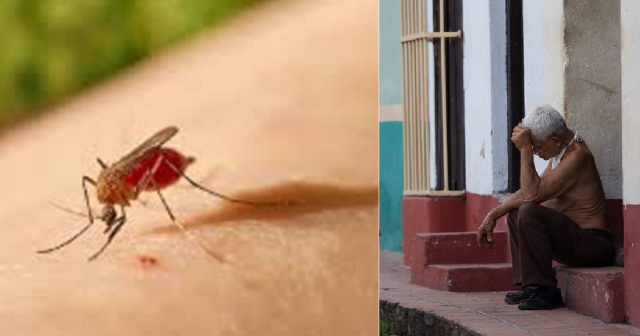The residents of Cienfuegos are on alert due to the increase in cases of Oropouche virus and dengue in the eight municipalities of the province, with the highest number of patients in Abreus.
The rapid progress of both epidemics, since mid-May, has mobilized health authorities in the province, the second in Cuba where the Oropouche virus, originating from the Caribbean but unknown in the country until recently, was detected.
In Abreus, one of the three municipalities where Oropouche was initially identified in Cienfuegos, an average of 50 cases per day were reported, a figure that has decreased to 10, according to a report from the local channel Perlavisión.
Health authorities acknowledged that they have not been able to control both epidemics yet, despite the implementation of a drastic protocol to cut the transmission of arboviruses in the area. This protocol includes the "lockdown" of households where residents exhibit "unspecified febrile syndromes" and 20 meters around those houses, as well as fumigation to eliminate the mosquito vectors.
However, in areas where the transmission of Oropouche has been halted, conditions persist for the spread of the dengue vector, which specialists consider more lethal than the recently emerged arbovirus in the country.
A woman reported that in the past week she had had a very high fever, vomiting, joint and headache pains, swelling, among other symptoms, and that several of her neighbors were in the same condition. They apparently had been infected with Oropouche virus at different times.
An official interviewed stated that in the locality there have been isolated cases of Oropouche virus and others with the Dengue variant 3, and ensured that they had the resources to eliminate the transmitting mosquitoes, Aedes aegypti and Culex quinquefasciatus.
Among the causes that have worsened the epidemiological situation in that municipality in Cienfuegos, the report pointed out the existence of uncovered tanks, overgrown yards, ditches, and water deposits, where vectors can proliferate. Additionally, the unsanitary conditions and irregular water supply to the population, with supply cycles that can last up to 10 days due to power outages.
A report from the local newspaper 5 de Septiembre denounced the growing presence of leaks, sewage water, garbage dumps, and lack of cleanliness in the capital city of Cienfuegos -once one of the cleanest cities in the country- and warned that these factors could accelerate the transmission of Oropouche virus, as is customary with dengue.
At the end of May, the Ministry of Public Health (MINSAP) confirmed the presence of the Oropouche virus in the country, two weeks after the first cases with "non-specific febrile syndromes" were reported in communities in the municipalities of Songo-La Maya and Santiago de Cuba.
By that date, the Oropouche virus had already spread to the municipalities of Abreus, Rodas, and the capital of Cienfuegos province. A week later, its detection was announced in San Nicolás, Mayabeque.
Although the Cuban health authorities have assured that the clinical picture of the disease is not serious, this Saturday the death of the young man from Santiago, Richard Daniel Nieves Chaveco, 22 years old, who was hospitalized with symptoms of Oropouche, was reported.
But the government has not confirmed any deaths due to the disease in the country, nor has it published the number of diagnosed cases.
Oropouche fever is a disease caused by the virus of the same name. It is transmitted by the midge Culicoides paraensis - which has not been detected in Cuba, but is present in the Americas region - and by the mosquito Culex quinquefasciatus, very common on the island and which inhabits any type of water, including sewers and contaminated water, exacerbating the danger in the country due to poor hygiene.
What do you think?
COMMENTFiled under:
